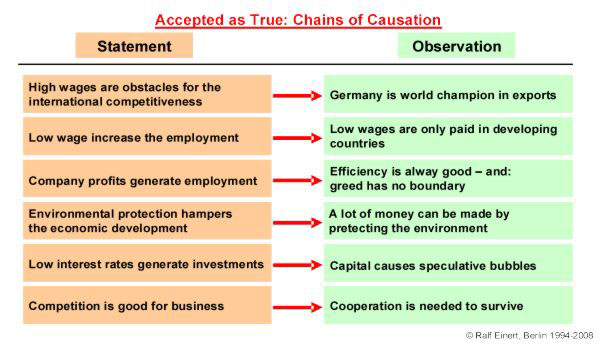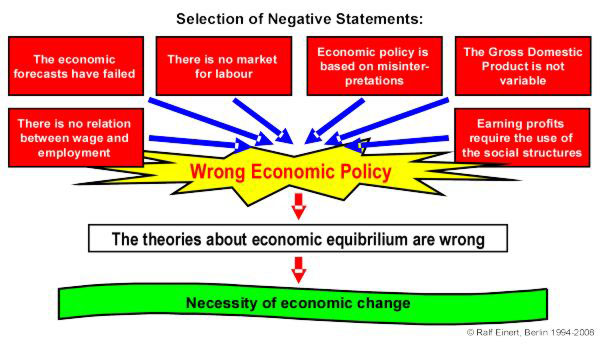BEGIN:
Preparation
» Doubts
Doubts
In times of great poverty or economic growth during the economic boom of the post war era it was self-evident to demand working harder and longer. It was not necessary to demand this everybody could see the success. The economic principle "the more the better" was obviously true.
Until now this principle is deeply connected with the consciousness of humans and still determines the actual economic policy. In the meantime the economic life cycle has reached the phase of saturation in which the economic growth is determined by the "law" of diminishing marginal utility and in which the development of the labour productivity is determined by the idea of the evolution theory. Under these circumstances the alternatives are the increase of unemployment or the decrease of the hours worked. As it is a social taboo to decrease the hours worked unemployment is caused by the social structures. But despite this millions of people are excluded from the use of the social structures and are stigmatised by the majority - and they even feel like this by themselves. (And this is why a huge industry was established which makes a lot of money by patronizing the unemployed.)
Similar mechanisms are in effect concerning economic theories which are mainly based on the equibrilium theory:
The equilibrium theory determines the political economy.
The political economy determines the economic system.
The economic system determines the society.
The society determines the individuals and their consciousness.
But if the equilibrium theory determines the society
and the situation of the society is permanent bad,
then the equilibrium theory must be false.
With a delay of nearly 400 years this leads to the necessity to reach the ultimate level of doubt of what the political economy teaches as Rene Descartes did for his own philosophical studies. Even the economic policy has to refer to what is really true. To keep old-fashioned chains of causation which are accepted as true heads to a dead end.
Doubts are the basis of the assumptions of the first chapter.

Economic chains of causation which are accepted as true










